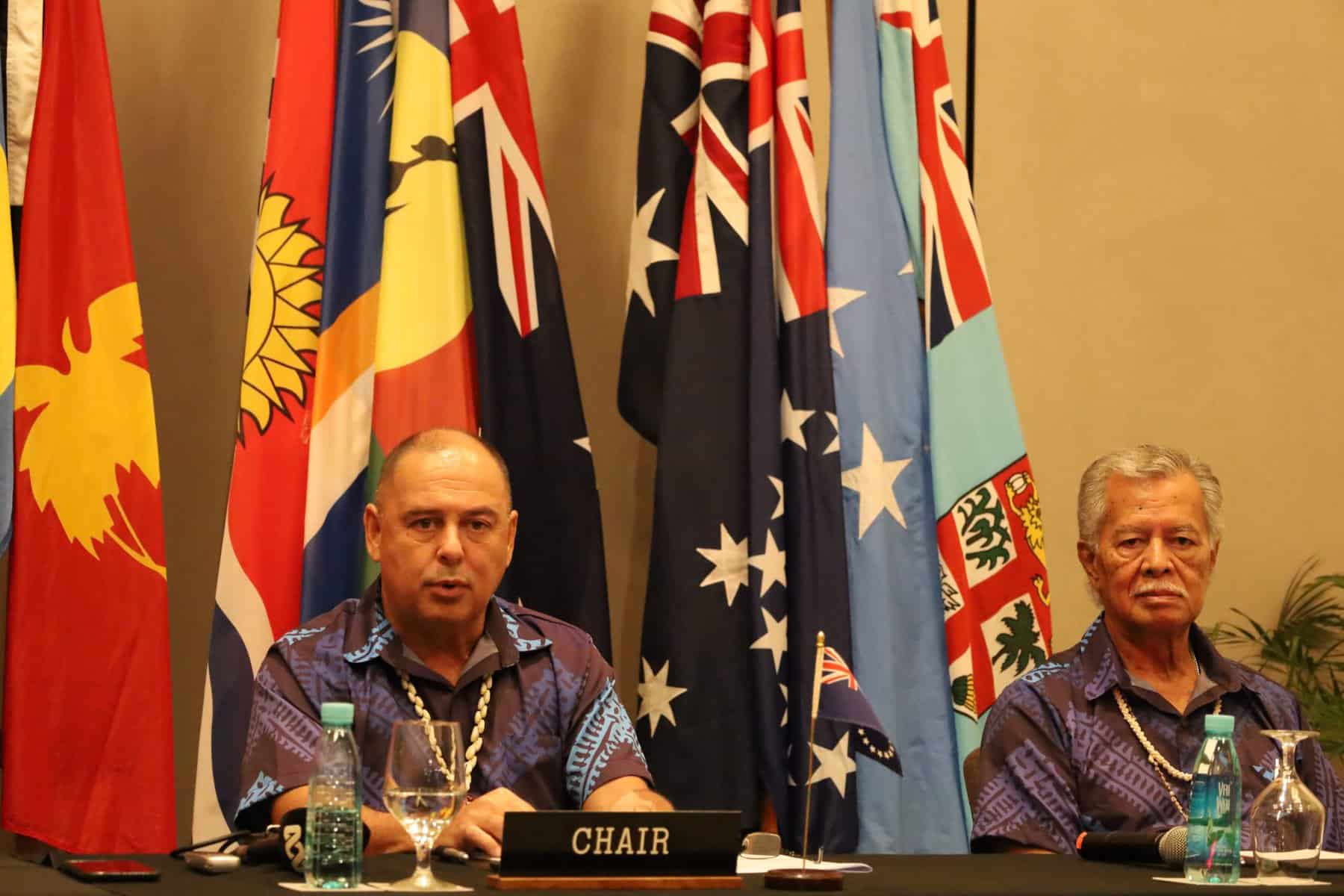As controversial plan by Japan to release treated waste water from the Fukushima nuclear plant sparked anxiety and anger at home and abroad, the ‘precautionary principle’ is of utmost importance to us in the Pacific says Forum Chair and Cook Islands Prime Minister Mark Brown.
Brown made the remarks at the International Atomic Energy Agency(IAEA) presentation of Fukushima report in Rarotonga Tuesday.
“Today, we meet here in Rarotonga, the birthplace of our 1985 Pacific Nuclear Free Zone established under our Treaty of Rarotonga. The Rarotonga Treaty was the very first nuclear free zone treaty to include a dumping prevention provision for radioactive waste and radioactive matter, a provision that was later emulated by other treaties.
“Through the Rarotonga Treaty, we highlighted how our zone encompasses ocean space and land territory of significant maritime and geostrategic significance. As such, we remain determined to ensure that the bounty and beauty of the ocean space, the land territory, and the airspace above them shall remain the heritage of our peoples and our descendants in perpetuity to be enjoyed by all.
“For any nuclear event that poses a risk to our Blue Pacific, we will always ensure that there is thorough and in-depth consultation and discussion. As we are seeing, this transboundary issue is receiving a lot of attention worldwide. That there continues to be diverging views highlights the continued importance of dialogue and genuine engagement.
“In this respect, the precautionary principle is of utmost importance to us in the Pacific, and we continue to stand by our priorities of “international consultation, international law, and independent and verifiable scientific assessments,” PM Brown told IAEA Director General, Rafael Grossi and his team as well as Pacific leaders who joined via online zoom.
Underpinned by our 2050 Strategy for the Blue Pacific Continent, we remain committed to addressing all nuclear threats to our small island developing states who occupy the Pacific Ocean as our home and livelihood, he said.
Brown said the Forum remain cognisant of the important role that the IAEA carries for the global community in strengthening the global nuclear safety and security framework.
“The Agency’s proactive engagement with the Government of Japan and with the rest of the International Community demonstrates a clear understanding that whilst nuclear safety remains the responsibility of each individual country, nuclear accidents can happen and can transcend national boundaries. As such, the work that IAEA does is critical,” said the Forum Chair.
PM Brown said the Forum shares a history of cooperation with the IAEA.
“Nine of our Pacific family are members of the IAEA. The Forum’s prior engagement with the IAEA have been related to the Pacific’s nuclear testing legacy, a legacy which continues to affect our people and our ocean, eight decades on.
More than ever, our region’s co-operation with the IAEA and the international community, including through membership of the IAEA, is needed,” PM Brown emphasised.
He also acknowledges Japan’s efforts, especially those of Prime Minister Fumio Kishida and his government.
“Prime Minister Kishida’s reassurances and his country’s sustained engagement with the IAEA and with our region, to ensure that the environmental impacts of the unfortunate 2011 nuclear accident will be handled with the highest levels care. On different occasions, our Pacific Leaders have held bilateral meetings with Japan where we each have been able to express our concerns and our encouragement to Japan, for the protection of our shared ocean against any potential harm from the Fukushima incident,” said PM Brown.
